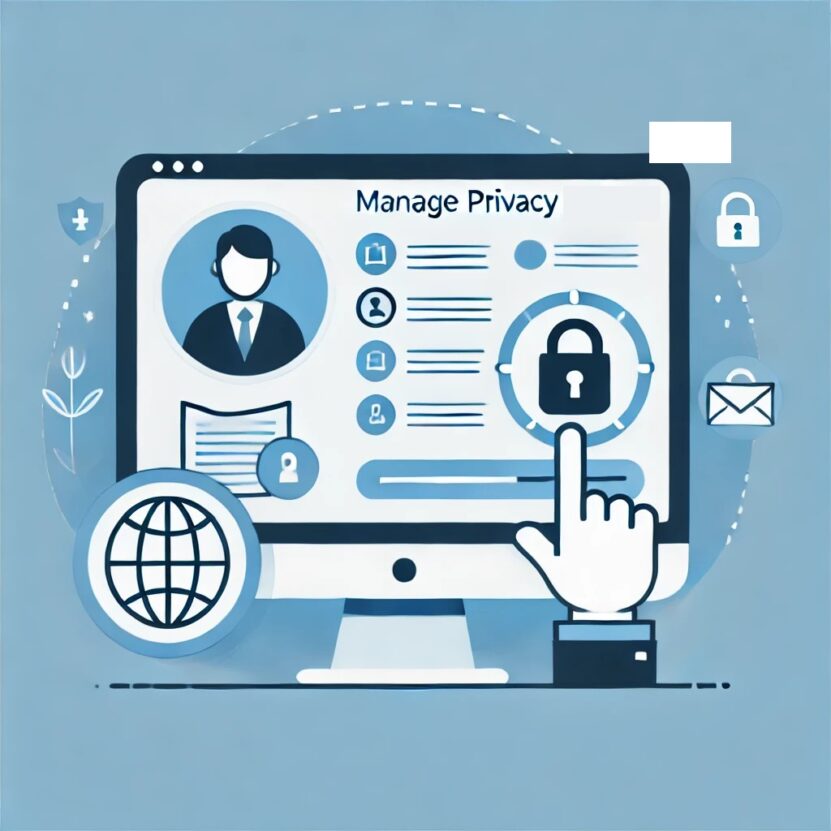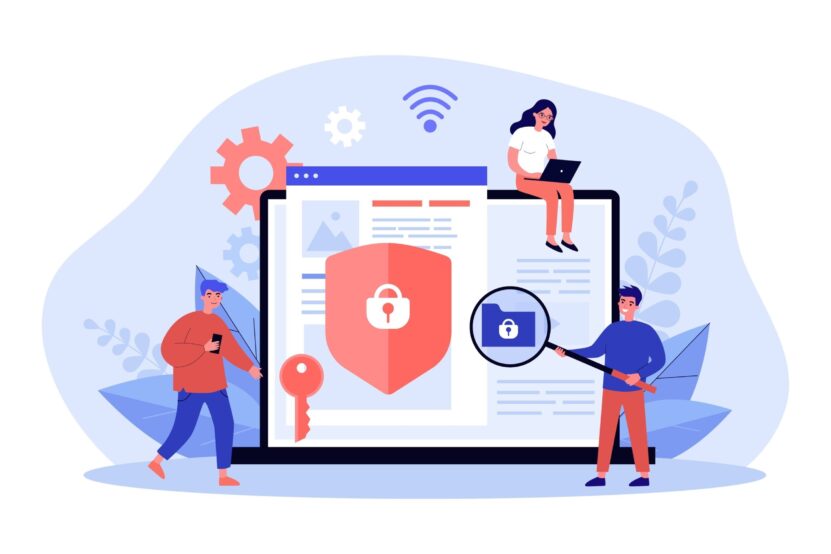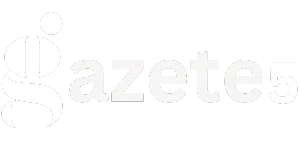In 2025, your digital reputation is often your first impression. Recruiters Google you.
Clients search your name before responding to a proposal. Even landlords might check your social media before renting you an apartment.
If your name pulls up outdated, misleading, or harmful content, it can cost you opportunities without you ever knowing.
To protect your digital reputation, you must do three things consistently:
- Control what gets published about you
- Monitor how your name shows up online
- Take action when something damages your image
Start With a Personal Audit: What’s Already Out There

You can’t fix what you haven’t seen. The first step is to search for yourself online exactly as others would. Use an incognito browser so the results aren’t customized to your search history.
Type your full name, variations of your name, usernames you’ve used in the past, and combinations like “Your Name + review” or “Your Name + Reddit.” This gives you a raw picture of how your name appears to the public.
Look through the first 3–4 pages of results, not just the first. Also, explore Google Images, YouTube, social networks, and even data broker sites.
Many people are surprised to find that an old Myspace profile, forum post, or Flickr album is still live and indexed by Google.
To streamline this, you can use free tools like Google Alerts (to be notified when your name appears online) or Social Searcher, which scans platforms for mentions.
For deeper scans and monitoring, reputation tools like BrandYourself or DeleteMe offer paid services that locate and remove personal data or flag damaging content.
| Tool | What It Tracks | Free/Paid |
| Google Alerts | New mentions of your name across the web | Free |
| BrandYourself | Negative links, outdated results, and risk factors | Paid |
| Social Searcher | Mentions on social media platforms | Free/Paid |
| DeleteMe | Personal data on data broker websites | Paid subscription |
Once you know what’s online, the next steps are about cleaning, controlling, and protecting.
Clean and Lock Down Your Accounts

Most damage to your reputation doesn’t come from strangers — it comes from your digital history.
Old tweets, embarrassing photos, sarcastic comments, or politically charged posts from ten years ago can easily resurface and get taken out of context.
In 2025, screenshots and AI-enhanced tracking tools make that content easier to find and harder to delete once it’s shared.
Go through every platform you’ve ever used. That includes Facebook, Twitter/X, Reddit, YouTube, TikTok, Instagram, and anything you may have signed up for before 2015.
Close accounts you don’t use anymore and delete anything that doesn’t align with the professional image you want now. Keep in mind that even private posts can be leaked or indexed.
Also, review and tighten the privacy settings on every active social account.
Make your personal Facebook and Instagram profiles private unless they serve a public professional purpose.
On LinkedIn, keep your profile public, but carefully manage what you post. Use each platform intentionally. If you don’t want something to be public in ten years, don’t post it now.
| Platform | Recommended Privacy Setting | Why It Matters |
| Friends-only or private | Prevents photos and comments from spreading | |
| Private (unless it’s a brand) | Avoids image leaks and tagging by strangers | |
| Public, but curated | Used by recruiters and employers | |
| Delete unused accounts | Prevents old opinions from resurfacing | |
| TikTok | Private or public with limits | Avoid impersonation or misuse of personal content |
These changes do not erase your online history entirely, but they minimize the risk of content being indexed or misused by others.
Own Your Narrative by Publishing Positive Content

You can’t remove everything from the internet, but you can bury bad content by outranking it with high-authority, positive content that features your name.
Search engines favor current, trusted sources. If you publish articles, create professional profiles, or build a website, those can rank above older or unwanted links.
This doesn’t require becoming an influencer.
You can start simple: register a domain name with your full name (like alexrivera.com), build a one-page website with your photo, short bio, work links, and contact details.
If you write, publish short articles on platforms like Medium or Substack.
If you’re in tech, GitHub or Stack Overflow can showcase your expertise. If you’re a creative, platforms like Behance or Vimeo can help you shape your public image.
The goal is not to flood the internet with content but to make sure the first page of search results reflects your values and achievements, not your mistakes or forgotten accounts.
| Platform | Use Case | Visibility Impact |
| Career visibility, networking | High (appears in searches) | |
| Medium | Share articles, expertise, and thought leadership | Moderate to high |
| Personal site | One-stop control of your public info | High (if optimized) |
| Substack | Publish newsletters or professional insights | Growing visibility |
| YouTube | Authority via public speaking or tutorials | High (indexed by Google) |
Publishing even a few well-written pieces under your name can push outdated or irrelevant search results down, making them harder to find.
Respond Quickly to Harmful or False Information
In 2025, the risk of misinformation, impersonation, and deepfake content is higher than ever.
AI-generated videos or voice clips can easily be used to frame someone unfairly or fake a scandal. That’s why you need to be ready to act fast if someone posts something damaging or impersonates you.
If you find a defamatory article or impersonation, start by contacting the platform or site hosting the content.
Most have forms for reporting false or harmful content. If the post is outdated, you can request de-indexing through Google’s Remove Outdated Content Tool.
For personal data (like your home address), you can submit a privacy removal request. If it’s an impersonation or deepfake, report it as identity abuse.
When you respond quickly and document everything — including screenshots and timestamps — you’re more likely to get results. If the issue involves legal violations or potential defamation, a digital law firm or online reputation manager can help you escalate.
Protect Your Identity From AI Threats and Spoofing

As deepfake technology becomes more realistic and more available, impersonation isn’t just a risk for celebrities.
Scammers can now clone your face, voice, or digital signature to create convincing false content.
If you’re applying for jobs, running a business, or active on video platforms, someone may try to use your identity to mislead others.
To reduce the risk, avoid oversharing personal data, especially on public profiles. Don’t publish your birthday, address, or full family details.
Use strong privacy settings on all platforms. If you’re frequently on video, consider watermarking your content or using services that track misuse of your images or voice.
| Threat Type | What to Do |
| Deepfake Video | Watermark content, monitor for copies |
| Voice Cloning | Avoid posting long audio clips under your real name |
| Impersonation Profile | Claim your name on all major platforms to prevent impersonation |
| Image Misuse | Use reverse image search (Google Images, TinEye, PimEyes) |
There are also emerging tools like Reality Defender and Sensity.ai that help identify deepfakes or unauthorized reuses of your face and voice.
These tools are becoming essential for anyone whose image or voice is online in any form.
Long-Term Strategy: Maintain and Monitor Continuously
Managing your digital reputation is not a one-time cleanup. It’s an ongoing process, like checking your credit or updating your resume.
Set reminders to Google your name every 2–3 months. Review privacy settings once a year. Update your LinkedIn and personal website regularly to ensure accurate, fresh content shows up in searches.
It’s also smart to use an RSS alert or mention-tracking tool that sends you updates when your name is used in new content.
This gives you time to react early if something problematic is posted.
A well-managed digital reputation gives you credibility, career mobility, and control. Ignoring it leaves your identity vulnerable — not just to strangers, but to outdated content, misunderstandings, or even deliberate harm.
Final Word
Everything about your future — from job interviews to new business deals — can be influenced by what appears when someone types your name into Google.
In 2025, with AI-enhanced search, data leaks, and impersonation tools becoming more common, you cannot afford to let your digital presence manage itself.
Start by knowing what’s online. Take back control of your accounts. Build new content that works in your favor. Monitor it regularly. Respond fast when problems come up.
Related Posts:
- 11 Digital Marketing Lessons from Greece's Top Influencers
- Website Development Costs for 2025 – What’s Changed…
- Best Option Trading Books to Help You Master the…
- Top 10 Celebrity Net Worths in 2025 ─ Who's Leading…
- Toya Johnson Net Worth: A Look at Her Wealth in 2025
- Burak Deniz Net Worth 2025 - The Rising Wealth of…









